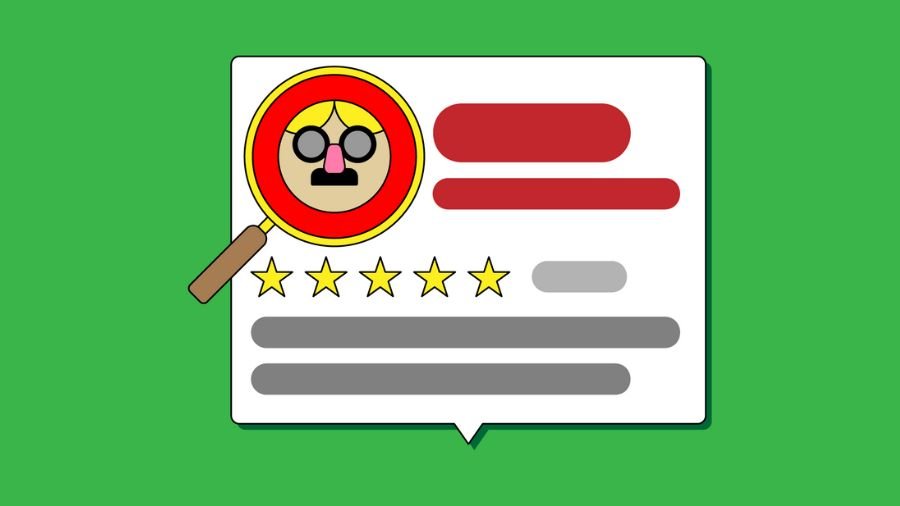1. Introduction
Online reviews have become a cornerstone of the modern consumer experience. Shoppers rely on the feedback of others to make informed decisions, whether it’s about a product, service, or even a restaurant. However, the authenticity of these reviews has come into question with the prevalence of fake feedback.
2. What Is Fake Feedback?
Fake feedback, also known as fake reviews or fraudulent reviews, refers to reviews that are not genuinely written by customers who have used a product or service. These reviews are often created with the intention of either promoting or disparaging a business, product, or service.
3. Why Is Fake Feedback a Problem?
Fake feedback can distort the reputation of businesses, mislead consumers, and damage trust in online review platforms. It can lead to unfair competition, as businesses that engage in fake feedback gain an unfair advantage over their competitors. Additionally, consumers may make decisions based on false information, leading to dissatisfaction and potential legal disputes.
4. Legal Consequences of Posting Fake Feedback
Posting fake feedback can have serious legal implications, including but not limited to:
- Defamation: If fake feedback contains false and damaging statements about a business or individual, it may be considered defamation.
- False Advertising: Fake feedback that promotes a product or service with misleading claims can violate false advertising laws.
- Consumer Protection Violations: Fabricated reviews can deceive consumers and breach consumer protection regulations.
- Breach of Terms of Service: Many online review platforms have policies against fake feedback, and individuals or businesses caught posting such reviews may face account suspension or legal action.
5. Laws Governing Fake Feedback
Different countries have various laws and regulations regarding fake feedback. In the United States, for instance, the Federal Trade Commission (FTC) has guidelines that require transparency in online endorsements and reviews. Violations of these guidelines can lead to fines and legal action.
6. High-Profile Cases and Their Outcomes
Several high-profile cases have shed light on the legal consequences of fake feedback. In some instances, businesses have been fined substantial amounts for engaging in deceptive practices. These cases serve as a warning to those considering fraudulent reviews.
7. Protecting Your Business Against Fake Feedback
Businesses can take proactive measures to protect themselves against fake feedback:
- Encourage genuine customer reviews.
- Monitor online review platforms for suspicious activity.
- Report fake reviews to the platform and appropriate authorities.
8. Identifying Fake Reviews
Identifying fake feedback can be challenging, but some common signs include overly positive or negative language, generic content, and a lack of specific details about the product or service.
9. Reporting Fake Feedback
If you come across fake feedback, it’s essential to report it to the relevant online review platform. They often have mechanisms in place to investigate and remove fraudulent reviews.
10. Legal Actions Businesses Can Take
Businesses that have been targeted by fake feedback can pursue legal action against the responsible parties, seeking damages for reputational harm and financial losses.
11. Personal Consequences for Posting Fake Reviews
Individuals who post fake feedback can also face personal legal consequences, including fines and damage to their own reputation.
12. Alternatives to Fake Feedback
Instead of resorting to fake feedback, businesses can focus on improving their products and services, responding to genuine customer feedback, and engaging in ethical marketing practices.
13. Ethical Considerations
The use of fake feedback raises ethical questions about honesty, transparency, and fair competition in the digital age. Businesses and individuals should consider the long-term consequences of such actions.
14. Conclusion
In conclusion, fake feedback has become a pressing issue in the world of online reviews. Its legal implications are substantial, and those who engage in this practice may face severe consequences. Businesses and individuals should prioritize ethical and transparent practices to maintain trust and credibility in the digital marketplace.
15. Frequently Asked Questions (FAQs)
Q1. Can businesses remove fake reviews themselves? A1. Yes, businesses can report fake reviews to the online review platform, and in some cases, they can be removed after investigation.
Q2. Are there legal consequences for businesses that unknowingly host fake feedback? A2. Generally, businesses that unknowingly host fake feedback may not face legal consequences, but they should take steps to address the issue promptly.
Q3. How can consumers protect themselves from relying on fake reviews? A3. Consumers can look for patterns in reviews, check multiple sources, and prioritize reviews from verified purchasers.
Q4. What is the role of AI in detecting fake feedback? A4. AI tools are increasingly used to detect patterns and anomalies in reviews, helping platforms identify potential fake feedback.
Q5. Where can I find more information on online review regulations in my country? A5. You can consult local consumer protection agencies or legal experts for guidance on online review regulations in your region.
In the age of online reviews, understanding the legal implications of fake feedback is crucial for both businesses and consumers. By promoting transparency and ethical practices, we can ensure a fair and trustworthy digital marketplace.



